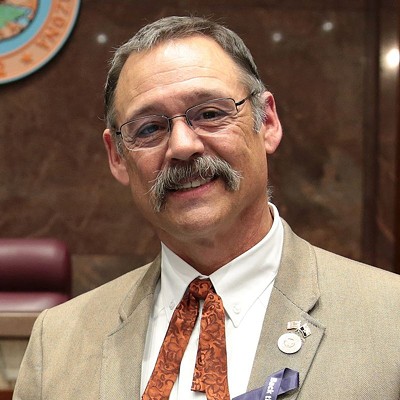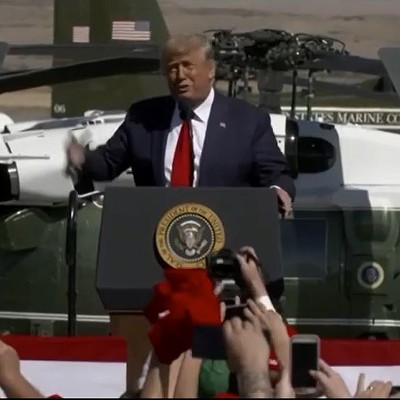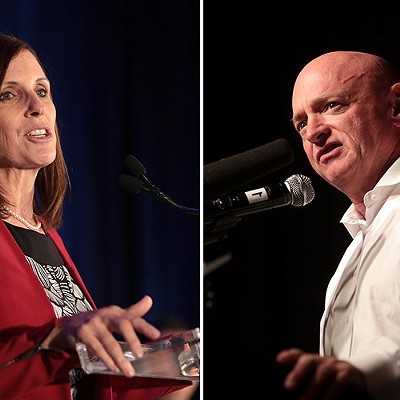Unfortunately, with the heat comes the annoyance of listening to people complain about it. Those who spend these idyllic months sniveling about how hot it is need to get a grip. Anyone with adequate cooling in his house and car should either stop whining or get his pansy ass back to Lansing.
If, on the other hand, you have to get around without a car, you have every reason to complain: This town has been built with no thought of the weather. (I dream of a brutal, muckraking documentary to be called Shadeless: The Killer Bus Stops of Tucson. There'd be lots of shots of women with little kids, disabled folks and frail old people peering hopelessly down the road as they slowly succumb to desiccation at stops consisting of 1) a pole, and 2) a sign.) Oh, and if you work outside? You're a hero. Kvetch to your heart's content, but first have another quart or two of cold water.
But if you don't really have to be out in the sun, can it. Think about the dirt-poor peasants dying out there on the rez for a chance to wash dishes, tar roofs and clip hedges. Thank your stars you were born an American: that is, air-conditioned and free to move to Seattle. (And, by the way, if you're really riled about immigration, let me just ask: Who do you imagine will be emptying your bedpan? Your children?)
Yet even the most lizardish Zonies will admit that the real heat does have one acute, universal and fixable pain: Getting into parked cars. If you are a pet owner, you may have noticed that your dog, no matter how addicted to riding around grinning like a fool, will refuse to enter a space filled with 150-degree air. The reason is that he fears death.
Since nearly all Tucson parking lots and curbs are in full compliance with the city's strict no-shade policy, we all share the excitement of risking hyperthermia several times a day. So let's stop and ask: Why is there no shade? Yes, it costs money to throw up a roof, build a garage or plant a mesquite, but the hellish sheet of asphalt strikes me as an odd business choice. Imagine the competitive advantage covered parking would give a Tucson shopkeeper or restaurateur.
I'm serious. When I used to review movies, I often found myself at midday in vast, nearly empty multiplex parking lots, where I noticed something interesting. At places like Century Gateway, where somebody had planted a few token mesquites, the eight or 10 cars out front would invariably be stationed in their precious shadows all the way out to the far reaches of the lot, while row after sunblasted row of closer slots remained empty. In other words, Tucsonans are so hungry for shade that they will actually walk to get it. Which makes me think they'd pay more, too.
What if businesses started offering and advertising shaded parking? (For everyone: Is there anything more infuriating than doctors' covered parking right next to the bubbling asphalt available to you, the lowly patient?) Let's go crazy and imagine that the city encouraged them to provide it. Living here in the summer would become less trying, which would mean that more rich people would move here and buy ridiculous houses and tell all their friends that they should move here, too--and isn't that our fondest civic dream? Then we could tax the pants off the Californians and the upscale businesses they'd patronize and use the money to put up bus shelters and plant trees and do other things that real cities do.
Think of it: We could become another Portland, even another Santa Cruz, just by building for the weather we actually have. Shade, not optics or biotech, is our future. Get in on the ground floor.






